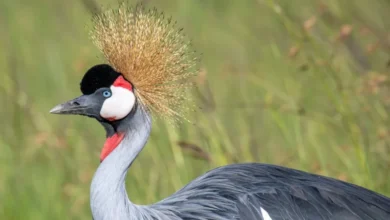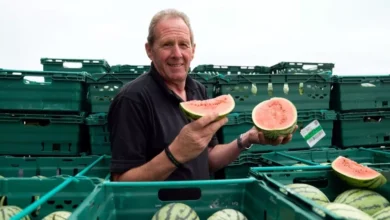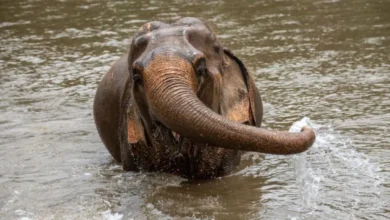Peas that don’t taste like peas could help the planet
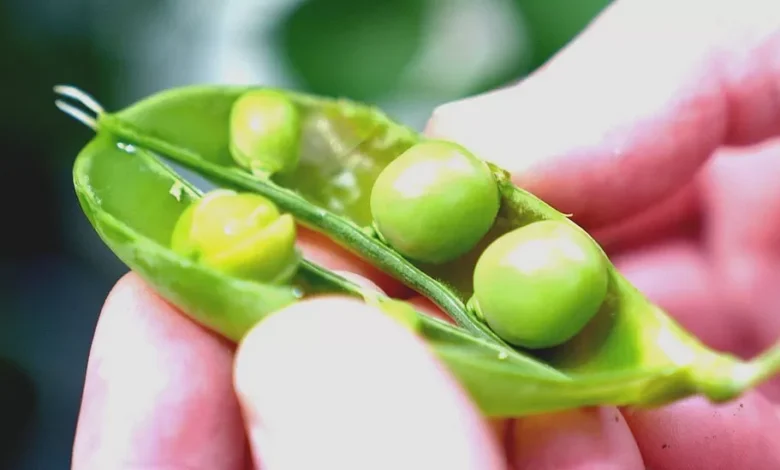
Scientists in the UK are developing peas that don’t taste like peas.
No, this isn’t a crafty plan to get children to eat their veggies.
As more and more people turn to plant-based food, they are hoping to produce a more planet-friendly, home-grown alternative to importing soya beans.
Peas are high in protein, but it is hard to mask their taste when they are used as a meat substitute in large amounts in vegan dishes.
Scientists discovered a gene for pea flavour 30 years ago. The research was stopped as there was no use for it. Now it could be the basis of a new industry.
“The world has changed. People increasingly want plant-based protein in their diets rather than from animals. So flavourless peas have suddenly become flavour of the day,” said Prof Claire Domoney of the John Innes Centre (JIC) in Norwich, one of the scientists working on the project.
The UK imports four million tonnes of soya a year for food and animal feed, with half a million tonnes used for vegan and vegetarian foods, according to Innovate UK, the government’s innovation agency.
Most of it comes from South America where soya production has been linked to destruction of rainforests.
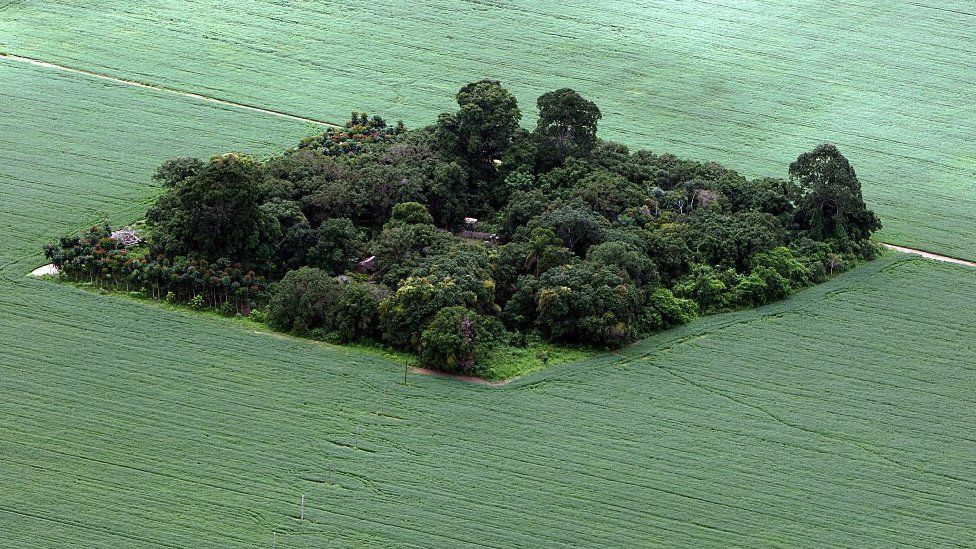
The project is part of a government scheme that links up industry with academic researchers to produce new projects with a benefit to society. It is among a number of research programmes announced by the government on Wednesday aimed at boosting food production while reducing greenhouse gas emissions.
It is being led by a Belfast-based plant breeding company, Germinal.
“We have an unsustainable habit for soya and we need to try and break that habit,” said the firm’s UK managing director, Paul Billings.
Plant-based demand
Demand is growing at 30% a year for meat alternatives, 50% for dairy free milk and 40% for cheese alternatives, according to Innovate UK. Increased pea production by UK farmers could fill that gap.
Peas have great environment-friendly credentials. Crops don’t require nitrogen rich fertilisers, which are energy intensive to produce. In fact, they put nitrogen and other nutrients back into the soil, further reducing the need for fertiliser as farmers rotate their crops.
But while many people love them, their flavour can be a turn-off in plant-based products. Even if you are trying to wean yourself off meat, you might not want your vegan burger to taste like peas.
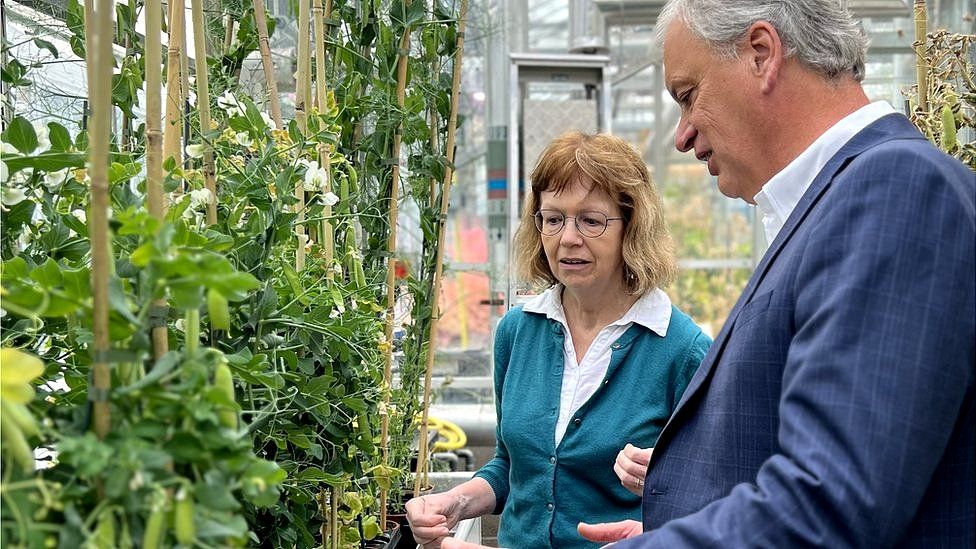
Prof Claire Domoney was a young researcher at the John Innes Centre in the 1990s as part of a team that made the initial flavour breakthrough.
The scientists discovered a gene in pea plants that produced a chemical made peas taste less fresh after they were picked, and then Prof Domoney identified a wild pea plant found in India where that gene did not function.
Pea producers were delighted by the possibilities of longer-lasting, fresher-tasting peas and began a breeding programme, but in the mid-2000s, Prof Domoney bumped into one of the breeders by chance and learned it had been scrapped.
“He said ‘this isn’t going anywhere, because we end up with fresh peas with no flavour whatsoever!'” she explained.
Then last year, Germinal contacted the John Innes Centre to see if they could help develop a UK-grown soya alternative. Prof Domoney’s project fitted the bill perfectly. She still works at the JIC and her project was restarted.
”It just goes to show,” she said with a broadening smile, ”that science is never wasted”.
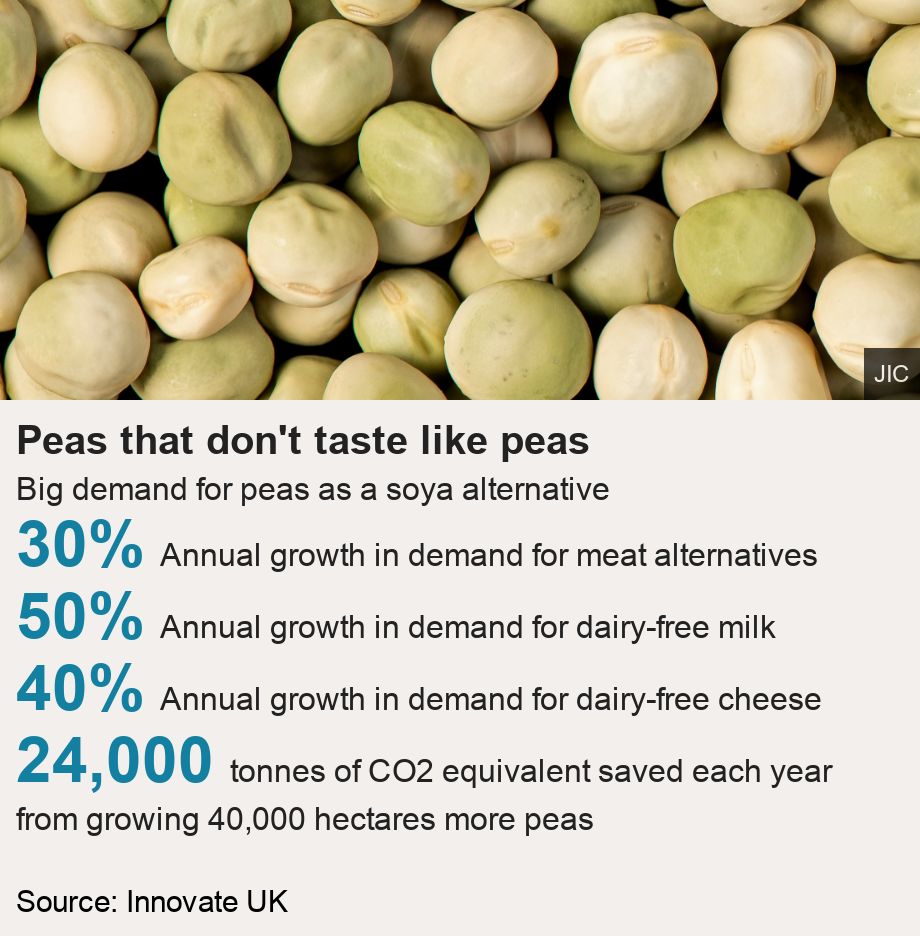
The aim is to produce a commercially viable alternative to soya that also has higher levels of digestible protein and is easier to harvest than current varieties.
This will be done using traditional breeding methods: cross-fertilising the wild Indian plant with other varieties chosen for their yield, high protein content and ease of picking by mechanical harvesters.
Once a suitable variety has been identified it will undergo field trials to see if it really can be grown and make money for farmers under real world conditions. The trials will be carried out by the Processor and Growers Research Organisation. Its CEO, Roger Vickers says that farmers are already starting to grow more peas because it reduces the amount of fertiliser they need.
“If farmers want to control their costs and act in an environmentally responsible manner, growing peas ticks both boxes. If there is an environmental focus on new government regulations then these crops are very well suited to these, and farmers are recognising that.”


